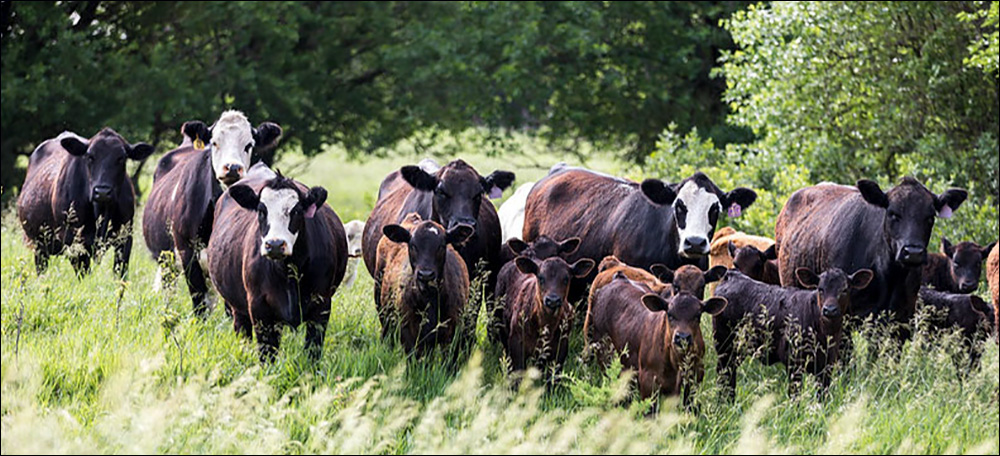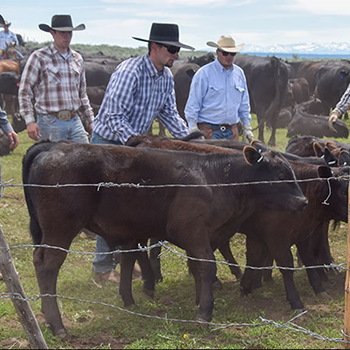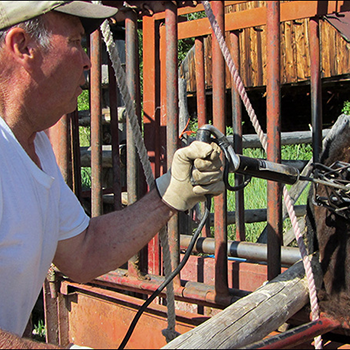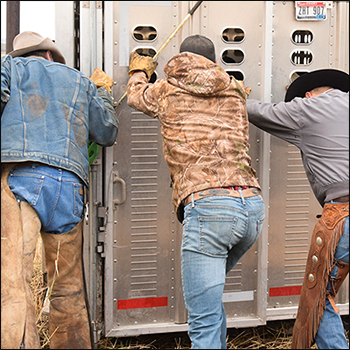
Monitor for Summer Pneumonia in Calves
Veterinarians explain how immunity can wane in the summer for spring-born calves.
In the winter it is common for people to have a cold or respiratory illness, but sickness in the summer often catches people unprepared.
In much the same way, cattle producers may be surprised when their calves show signs of respiratory distress during the summer before they are weaned, veterinarians at the Kansas State University (K-State) Beef Cattle Institute (BCI) said on a recent Cattle Chat podcast.
“Signs of pneumonia in calves include rapid breathing, laying down and being reluctant to rise, and having a high temperature,” said Bob Larson. “These calves may also stray behind the rest of the herd due to difficulty breathing.”
The most likely age for calves to be diagnosed with pneumonia, he added, is between 70 days and 150 days of age, often in late summer for spring-calving herds.
One of the reasons they are susceptible to sickness is their waning immunity.
“Newborn calves get immunity from the proteins in their mother’s colostrum, but those proteins degrade over time, which is why some of the biggest calves can get sick,” said Brad White.
Brian Lubbers added: “These calves have passive immunity that is dropping, and their host immunity hasn’t quite risen to the level of being protective.”
The calves are not necessarily in a high-exposure environment, since they are still with their mothers, but because their immunity is declining, they are not as well-protected against sickness, Larson explained.
However, if newly weaned stocker calves are introduced on the ranch, they can raise the risk of sickness in the preweaned calves. White encouraged keeping these two populations separated for biosecurity.
“When people talk about a summertime preweaning pneumonia, the respiratory sickness is primarily associated with viral infections,” Lubbers said.
Summer pneumonia is not common and is often survivable with the right treatment, White said. “About one in five herds will experience preweaning pneumonia, and within those herds up to 15% of the calves will be infected.”
One prevention strategy is to vaccinate the calves against bovine respiratory disease around 3 months of age, but that isn’t a guarantee they won’t get sick, Larson said.
“Young animals don’t typically respond as well to vaccines as ones that are 7 months of age or older,” he said.
As with any animal health challenge, Larson urged producers to “consult your veterinarian to determine the best treatment and prevention plans for your herd.”
To hear the full discussion, listen to the BCI Cattle Chat podcast online.
Editor’s note: Lisa Moser is a communications strategist and instructor for K-State Research and Extension. Photo courtesy K-State Research and Extension.







